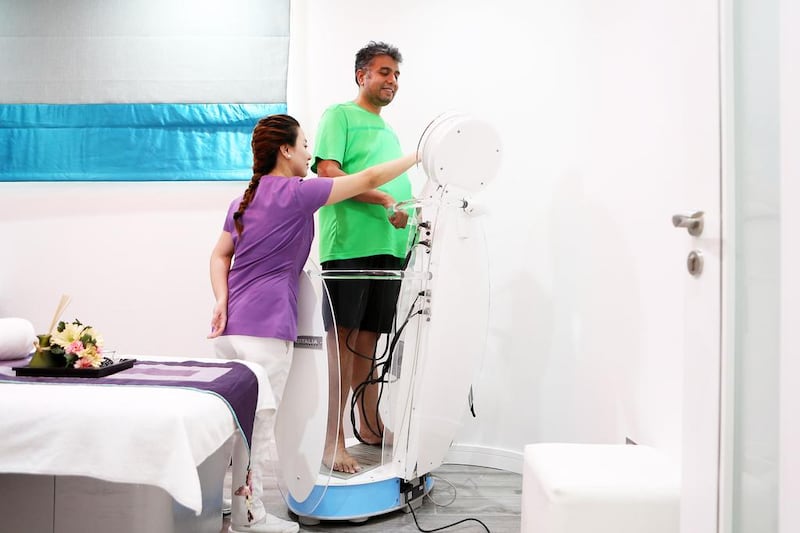DUBAI// Rapid weight loss through surgery or fat-burning machines does not guarantee a healthy future for morbidly obese patients, doctors warn.
Surgery should be the last resort for obese patients who have failed to lose weight using other methods and they risk returning to their former weight unless lifestyle changes are also made.
Body mass index, a figure calculated by dividing one’s weight by the square of one’s height, is used by many doctors to ascertain if someone is overweight, with a reading over 30 considered obese.
Dr Faisal Badri, head of general surgery at Rashid Hospital in Dubai, said weight loss must be achieved the correct way to achieve long-term success.
“When the patient comes to us, surgery is usually a last option,” he said. “If a patient’s BMI is more than 52, it is likely nothing else will work for them.”
According to the Global Burden of Disease Study 2013, more than 66 per cent of men and 60 per cent of women in the UAE are overweight or obese.
Half of all bariatric operations done at Rashid Hospital are sleeve gastrectomies, where doctors remove 75 to 80 per cent of the patient’s stomach.
“We know patients with a sleeve gastrectomy lose weight rapidly, faster than a gastric bypass,” said Dr Badri.
“Usually there is no problem, but in 20 to 25 per cent of sleeve patients, they gain weight later in life.
“Technology is changing all the time, but it needs a sensible approach. People must also change their lifestyles.”
Experts have warned against sudden weight loss and said that gradual change was healthier. Rapid weight loss can lead to a reduction of water weight, or lean tissue, rather than the fat shed during a more moderate rate of weight loss.
Risks associated with bariatric surgery include internal bleeding, blood clots, changes to bowel function and bowel obstruction, or internal hernias.
Before surgery is considered, patients are ordered on to a six-month weight-loss programme to reduce weight naturally, with strict diet and exercise plans from Dubai Health Authority’s clinical nutrition department.
“Bariatric surgery is not the only cure for obesity,” said Dr Zaid Al Maazami, a consultant in general and bariatric surgery at Dubai Hospital.
Fat-burning machines may offer a safer alternative. Ultrasound waves break down fat cells without damaging nearby blood vessels, skin, muscle, bone or nerves. Broken-down fat cells are absorbed by the patient’s white blood cells and burnt up by the body.
Estate agent Anil Dadlani, 47, weighed 116 kilograms when he was given an ultimatum by his doctor to lose weight.
Within two months of using a fat-burning machine at a clinic in Dubai, he had lost 16kg and was on his way to a target weight of 85kg.
“I had too much visceral fat surrounding my organs and I was told I had to halve the amount I was carrying because it was dangerous,” he said. “The first 10kg came off very quickly but the rest took a bit longer.”
To ensure the weight stays off, Mr Dadlani, who lives with his wife and daughter in Jumeirah Lakes Towers, adopted a healthy eating and exercise programme.
Dr Farah Bakhit Juma, senior house officer in general surgery at Dubai Hospital, said: “Primarily, patients need to accept responsibility for their health and well-being.”
nwebster@thenational.ae






